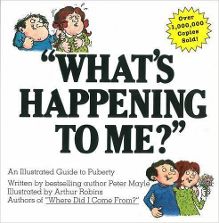** What Happens to Car Loan When You Die: Understanding Your Options and Responsibilities
When it comes to financial matters, one of the most daunting questions many people face is: What Happens to Car Loan When You Die? This concern is particula……
When it comes to financial matters, one of the most daunting questions many people face is: What Happens to Car Loan When You Die? This concern is particularly relevant for individuals who have outstanding debts, such as car loans. In this article, we will explore the implications of death on car loans, the responsibilities of the deceased's estate, and the options available to surviving family members.
When a person passes away, their debts do not simply vanish. Instead, the deceased's estate is responsible for settling any outstanding obligations, including car loans. The first step in this process is to determine whether the deceased had a co-signer on the car loan. If there was a co-signer, that individual would typically be responsible for the remaining balance on the loan after the death of the primary borrower. This can create a significant financial burden for the co-signer, especially if they were not prepared for this responsibility.

In cases where the deceased had no co-signer, the car loan will be paid off from the estate's assets. The executor of the estate will need to assess the total value of the estate, which includes all assets and liabilities. If the estate has sufficient assets to cover the car loan, the executor will use those funds to pay off the debt. However, if the estate is insolvent (meaning the debts exceed the assets), the car loan may go unpaid. In such situations, the lender typically cannot pursue surviving family members for the remaining balance unless they were co-signers or guarantors.
Another important aspect to consider is whether the car is considered an asset of the estate. If the vehicle is paid off, it can be sold to help cover debts, including the car loan. If the car is still being financed, the executor may have to decide whether to keep making payments to retain the vehicle or sell it to settle debts. This decision can be challenging, especially if the car holds sentimental value for the family.

Surviving family members may also have the option to assume the car loan. This is particularly relevant if they want to keep the vehicle. Many lenders allow family members to take over the loan, but this typically requires the surviving family member to qualify for the loan based on their creditworthiness. If approved, the family member can continue making payments and retain ownership of the vehicle.
It is also essential to understand the role of insurance in this scenario. If the deceased had life insurance, the payout from the policy could be used to settle debts, including car loans. This can provide financial relief to surviving family members and help ensure that the estate is settled without further complicating matters.

In conclusion, the question of What Happens to Car Loan When You Die is complex and varies based on individual circumstances. It is crucial for individuals to plan for their financial future, including understanding how their debts will be managed after their passing. Consulting with a financial advisor or an estate attorney can provide valuable insights and help families navigate this challenging situation. By understanding their options and responsibilities, surviving family members can make informed decisions and minimize the financial impact of a loved one's passing.